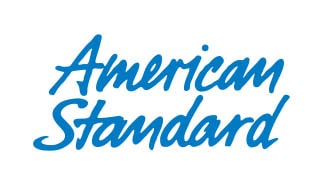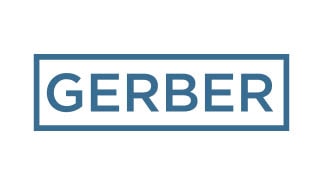Published on
June 6th, 2024What Is Causing the Water Hammer Sound in Your Building?
Are you receiving numerous tenant complaints about banging or knocking noises from the walls? Those mysterious noises are often associated with water hammer sound effects. You shouldn’t ignore or push off investigating these noises because they can point to significant plumbing issues, including leaks and ruptures. Discover the common causes of these noises and what you can do to resolve them.
Top 5 Causes of a Water Hammer Sound
1. Faulty Appliances and Fasting-Acting Valves
Many modern appliances, such as washing machines and dishwashers, use solenoid valves to control water flow. These valves are electromechanical devices that use electricity to control the flow of liquid in a pipe. They open and close quickly, allowing for precise filling of the appliance.
While precision is necessary, the abrupt closure can cause problems in your plumbing system, mainly when issues already exist. The sudden stoppage of water flowing at high pressure creates a shockwave that reverberates back through the system. Like a fast-moving train slamming on its brakes, the force and momentum must go somewhere.
The shockwave from the valve closure travels backward, colliding with the plumbing system’s bends, fixtures, and pipes. The collisions cause the characteristic banging or knocking water hammer sound. If the pressure is high or strong enough, the force can damage system elements.
The internal components of valves can wear out over time, which can cause them to close faster or less smoothly, exacerbating the water hammer effect. While other faulty parts of appliances can cause the noises, faulty or worn solenoid valves are a common contributor.
2. High Water Pressure
Your household plumbing system is like a well-designed highway network; it’s designed to meet specific traffic volumes. Normal water pressure is like cars moving at a reasonable speed. Abruptly closing a faucet or a fast-acting valve is like putting up a sudden roadblock. Some bumping and jostling is normal, but your pipes can handle it.
High water pressure changes the picture. Imagine a highway packed with speeding vehicles instead of a steady flow of cars. Now, a sudden roadblock in the system, like the closing of a solenoid valve or fixture, causes violent collisions and multi-car pile-ups. In your plumbing, this translates to a shockwave surging backward, knocking into pipes, joints, and other components, causing the water hammer sound.
Your plumbing system has some resilience to shockwaves, but it also has a limit. High water pressure magnifies the force of water hammer. Each “bang” isn’t just an annoyance; it’s a sign of wear and tear happening inside your walls. Over time, water hammer can cause weakened joints, leaks, and even ruptures. Addressing high water pressure is about more than addressing the noise; it’s about protecting your building infrastructure.
3. Loose or Unsecured Pipes
Loose or unsecured pipes can turn your plumbing system into a loud, disruptive, and destructive force. Usually, plumbers securely anchor pipes to walls and framing, restricting movement and allowing for force absorption. However, if your system contains loose or unsecured pipes, it will enable movement. A water hammer event causes those loose pipes to bang and rattle against walls, framing, and other pipes, resulting in the typical water hammer sound.
Unfortunately, the noise is the least of your concerns. When pipes move freely, the force of water hammer strains joints and fittings. Over time, those repeated impacts loosen connections, leading to leaks. In severe cases, the constant movement and repeat shockwaves combined with high pressure can weaken the pipes, threatening a rupture and turning a minor annoyance into a plumbing emergency.
Loose pipes can amplify the water hammer issue by adding their vibration to the shockwave. This combination of factors creates a destructive cycle in which water hammer weakens pipes, and those pipes in turn contribute to stronger future events.
4. Worn-Out Plumbing Components
Worn-out plumbing components are ticking time bombs for water hammer problems. Sticking to maintenance and inspection schedules is crucial to avoid issues and resolve potential problems quickly.
In your plumbing highway system, faucets and valves are like traffic lights or cops. They control the smooth flow of water, limiting the causes of water hammer sound. When wear and tear take their toll on various components, it’s like your system is working with faulty traffic signals and traffic police falling asleep on the job, resulting in sudden stops and starts and numerous collisions.
As with real-world traffic systems, it is crucial to address failing or faulty components in your plumbing. Worn-out components not only exacerbate water hammer noises but can also lead to system and structural damage. Left unchecked, minor wear and tear can cause significant financial and property damage.
5. Trapped Air in Pipes
Air pockets within your plumbing system might seem harmless, but they can significantly contribute to the bothersome water knocking in pipes known as water hammer. Your plumbing system is a closed system, so air shouldn’t end up in the water lines. Unfortunately, air sneaks into your plumbing in many ways, including during repairs or inspections that require draining parts of the system. Small leaks and loose connections can also allow air into the system.
Initially, trapped air can reduce the effects of the water hammer sound, providing a cushion that absorbs some of the shockwave’s force when valves close. The problem is that an air pocket is temporary. As water moves through the system, it pushes the air pocket along, compressing it. Eventually, the air pocket gets displaced and your system loses its cushion, leaving it vulnerable to the full force of the shockwave.
While air pockets can initially protect your system, they don’t belong. They eventually worsen the water hammer effects, can reduce water flow, and accelerate corrosion. A plumber can and should address any air or water hammer issues. Do not attempt DIY repairs or fixes because they can worsen the problem.
Identify and Resolve the Cause of the Water Hammer Sound
How Sanitary Plumbing Can Help
The water hammer sound is more than an annoyance; it’s a sign of potential damage lurking in your building’s plumbing. If you or your tenants notice strange noises that originate in your building’s plumbing system, don’t let it escalate. Contact Sanitary Plumbing at 212-734-5000 to schedule a thorough diagnosis and receive a lasting solution.








